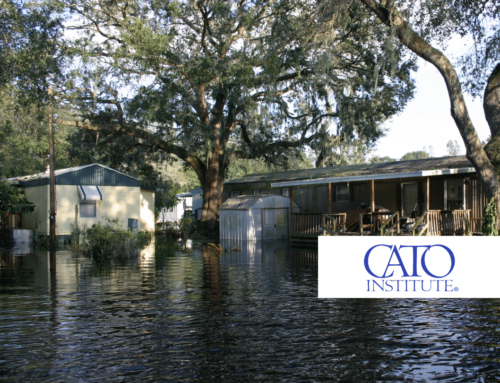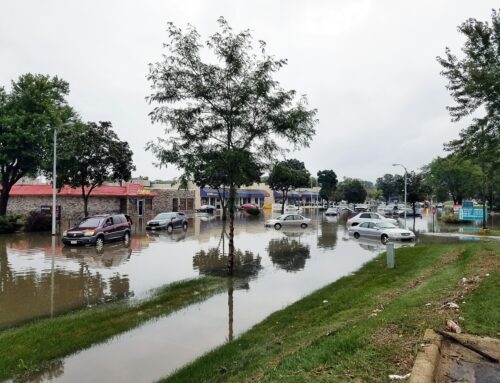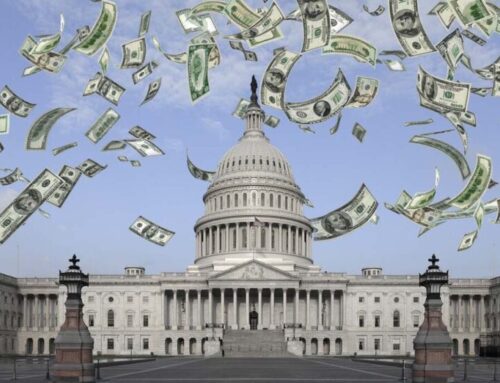Lawmakers writing the transportation spending bill have a problem. Actually they have 89 billion problems, because that’s how many dollars they are short between what they want to spend over the next six years and the revenue bean counters expect.
Considering the contortions Congress has gone through when it came to finding offsets for more spending in recent years, it’s in a fiscal pickle.
You know the saying: When the going gets tough, the tough get going? The question here is where are lawmakers going? Are they going to make tough decisions and find the transportation-related revenue for their transportation-spending appetite? Or are they going to try to find an easy route through starving other accounts, paper gimmicks, or raiding the Treasury’s refrigerator?
Our transportation system relies on user fees, most notably the gas tax. The basic idea being that transportation infrastructure should be paid for by those using it and be self-sustaining. Thus, you pay for the roads when you fill-up your F-150, not when you fill out your Form 1040. But in recent years the math hasn’t worked. We’ve run out of money.
Not surprisingly, lawmakers are trying to find an easy way out. After raiding the Treasury for an additional $50 billion since 2008, they are now sinking to new lows by proposing ridiculous offsets.
House Republicans have suggested using savings from getting rid of Saturday mail delivery as an offset. Well, you could say that having fewer mail vehicles on the road reduces impact, but that’s pretty much the inverse of a user fee like the gas tax.
Senate Finance Committee Chair Ron Wyden (D-OR) has suggested using 10 years of mostly gimmicky offsets (although it does call for an increase in the Heavy Vehicles Use Tax, which hasn’t changed in 30 years) to generate $9 billion in revenue to keep the Highway Trust Fund afloat through the end of 2014.
Not to be outdone, some Senators are floating the idea of using multinational corporations’ profits that are parked overseas as an offset. There is an estimated $1.95 trillion in profits being kept out of the U.S. to avoid the official 35 percent corporate tax rate.
The idea is to let companies bring these profits back stateside but taxed at a rate of five percent or so. And voila. There’s $98 billion in revenue to replenish the trust fund for years. That seems rather untenable, given that the Joint Committee on Taxation estimates that this kind of tax holiday would really only bring in $19.6 billion for two years before becoming a revenue loser.
There are several problems with these staggeringly bad ideas. One, they don’t fix any of the fundamental problems with the trust fund revenue shortfalls compared to lawmakers spending desires. Two, revenue generated from a tax holiday — if such a scam was to be perpetrated on taxpayers — should go to the Treasury, not some dedicated purpose. We still have a half–trillion-dollar deficit and a $17.5 trillion debt, after all.
Three, certainly our nation’s tax code needs to be reformed, but taking care of just one aspect that needs to be fixed actually would reduce some of the incentive for broad reform and in an inequitable way. Finally, instituting tax holidays for profits stashed overseas only encourages more of that kind of parking in the future. The last time Uncle Sam took this step, $804 billion was overseas. Just 10 years later, there’s nearly $2 trillion.
Instead of resorting to gimmicks and “get rich quick schemes,” lawmakers need to make hard decisions. Cut spending or come up with some new revenue. Cars are more fuel-efficient, generating less gas tax revenue per mile traveled. Plus, the 18.4-cent gas tax hasn’t changed since 1993, which means inflation has trimmed its spending power.
The Congressional Budget Office (CBO) estimates that the gas tax would total roughly 30 cents if it were indexed to inflation. Coincidentally, the CBO estimates the tax would have to increase 10 to 15 cents to pay for current spending levels in the future. Hmmmm.
Congress can also be forward-looking and explore even more truly user-fee type revenues, like vehicle miles travelled, expanded tolling, or other user fees based on actual usage and resulting wear and tear — any of which would be better than the gas tax.
What we can’t afford are gutless lawmakers who refuse to go the distance for taxpayers.











Get Social